Interview: Artistic Director Kazushi Ono talks about the 2024/2025 season
―Please tell us about the performances in the 2024/2025 season. Firstly, three new productions will be presented. The season will open with a bel canto opera, Bellini's La Sonnambula. At long last, this will be the first performance of a Bellini opera at the New National Theatre Tokyo (NNTT).
One could say that bel canto opera is the quintessence of opera, but when I first became Artistic Director, the only bel canto operas in the repertoire of the NNTT were Donizetti's Lucia di Lammermoor and L'Elisir d'amore and Rossini's Il Barbiere di Siviglia. I therefore decided to increase the bel canto repertoire, and after Donizetti's Don Pasquale and Rossini's La Cenerentola, I can finally present Bellini in the new season.
The central characters in La Sonnambula (The Sleepwalker) are two lovers, Elvino and Amina, and the sleepwalker is Amina. She is a very beautiful woman who is admired by everyone, but she has a mysterious habit of wandering around at night; eventually she is saved by the power of Elvino's love.
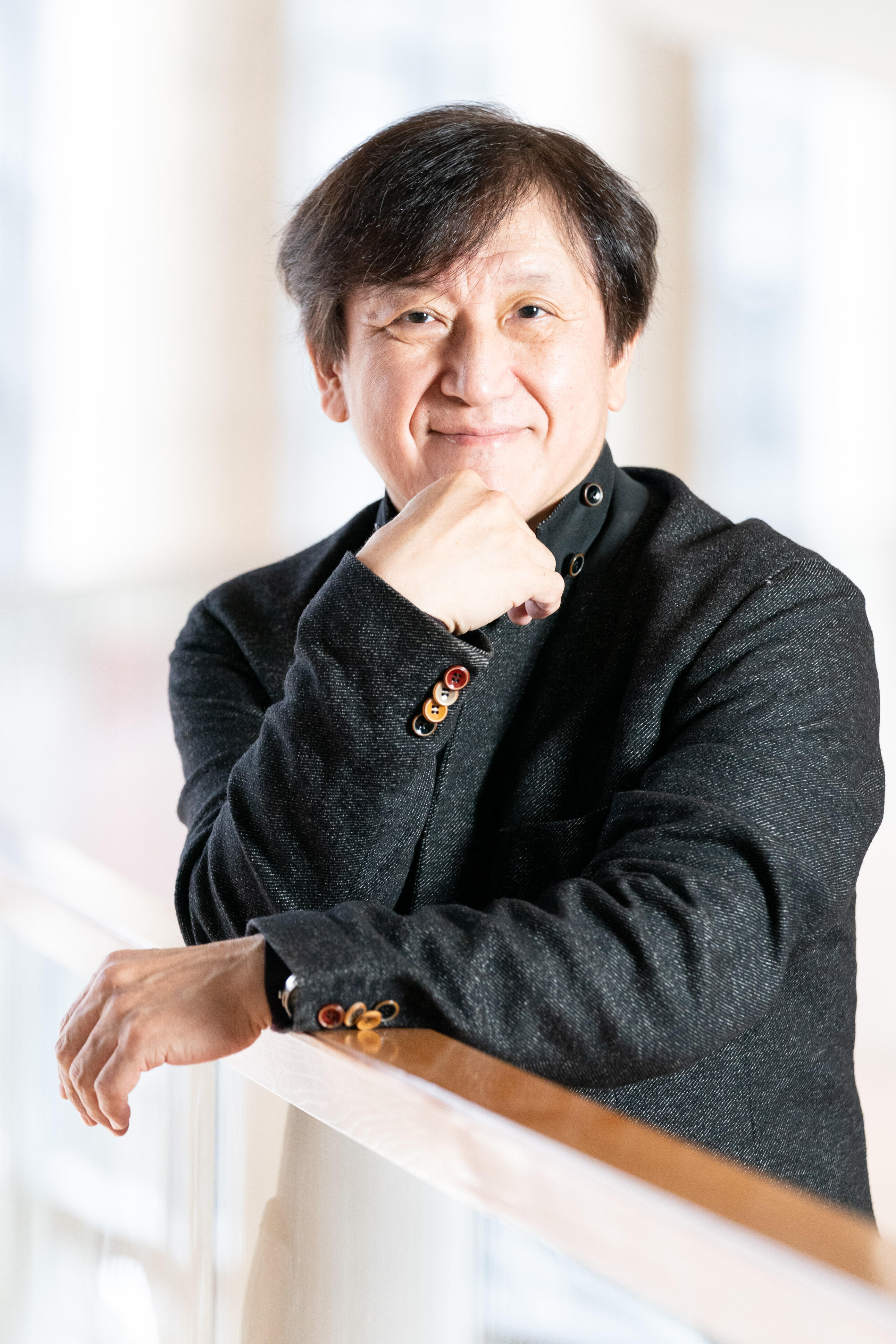
Ono Kazushi
Both Amina and Elvino sing brilliantly and very high. The role of Elvino is sung by tenor Antonino Siragusa. He is a great singer and a familiar figure to all, and he is making a welcome return to the NNTT after 11 years.
Maurizio Benini will conduct. He is a great maestro who conducted Rigoletto with us last year and Tosca this July. The director is Bárbara Lluch, making her NNTT debut. She has a unique background: originally an actress, she moved to London to work as an assistant to directors such as Jonathan Miller, Robert Carsen and David McVicar, and is now very active as a director in the world of opera and Spanish zarzuelas. We hope you will enjoy the collaboration of her and Maestro Benini.
La Sonnambula is an international co-production with the Teatro Real in Madrid, the Gran Teatre del Liceu in Barcelona, and the Teatro Massimo in Palermo.
―The second new production is Guillaume Tell, also by the bel canto opera composer, Rossini. The overture is very famous, but the opera is rarely performed, and it will be staged for the first time in the original French language in Japan. You will conduct.
Guillaume Tell, or William Tell, is an opera seria based on Schiller's play and was the last opera written by Rossini. It was composed over a period of five months. Normally people would think he took 'only' five months, but as Rossini had previously dashed off works in a few days, he took an unusually long time to compose this opera.
Guillaume Tell is a historical drama, in which Austria and Switzerland are enemies, with Tell representing the Swiss villagers and Gesler representing the Austrians. It is an unprecedented opera in that it is a romantic work with a very realistic subject matter - the conflict between countries and communities. It was first performed in 1829 when Rossini was 37. This was two years after Beethoven's death, and in the history of opera, it is seen as a highly symbolic Romantic Opera written just after what could be considered the end of the Classical Era.
One of the main characteristics of Guillaume Tell is the length of the performance. If the score is performed as it is, it would take more than four hours, so we are currently looking into how we can shorten it. However, even though it is long, the music is light and easy to listen to. Fidelio, for example, is only about two and a half hours long, including the intermission, but it will sound weightier than Guillaume Tell. In that sense, I think this opera has what makes Rossini Rossini.
For this performance, we have assembled an impressive line-up of singers well suited to Rossini. Baritone Gezim Myshketa is a specialist in the role of Guillaume Tell. At the NNTT, he performed with Eri Nakamura in La Traviata in 2022, where his characterisation was highly acclaimed. The role of Arnold is sung by René Barbera, who greatly enchanted us in La Cenerentola in 2021. Some of you may remember the great applause for encores at every performance. The role of Mathilde is played by Olga Peretyatko, who was captivating as Lucia in 2017. I have known her since she was in her twenties at the Hamburg Opera Studio, and I am delighted we have been able to invite her. The antagonist Gesler is sung by Hidekazu Tsumaya. In La Sonnambula, Tsumaya plays the role of Count Rodolfo, who comes between the young lovers, so he will be playing a role that divides people in two consecutive operas. It is the opposite of his personality (laughs), but I expect him to play this important role wonderfully.
―The production will be directed by Yannis Kokkos.
Yes, Yannis Kokkos directed the 2021 double bill of Le Rossignol and Iolantha, but because of the pandemic it was done remotely from Paris. This time he will come and direct in person. His strong point is that he focuses on the dramatic elements of the opera. I anticipate the production will emphasize the greatness and interiority of the spirit. At the same time, his stagings are always very refined, making him perfect for Guillaume Tell.
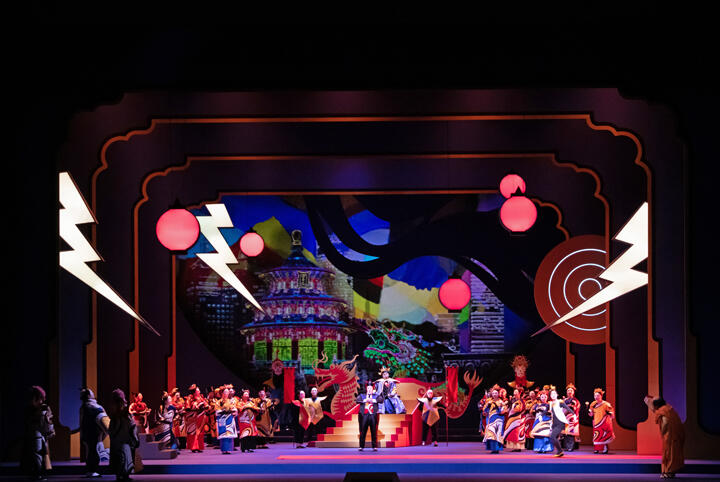
Le Rossignol (2021)
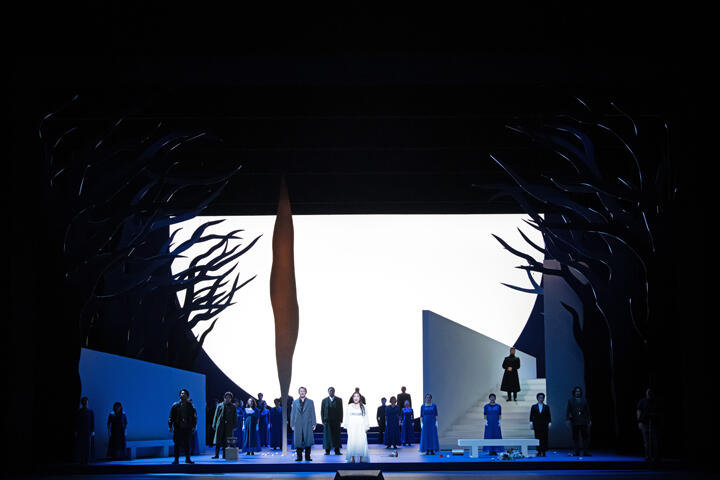
Iolanta (2021)
―The third new production is Natasha, which will be performed at the end of the season in August 2025. It is the highly anticipated world premiere of Toshio Hosokawa's new opera.
This is a new work in the series of commissioned works by Japanese composers which has been one of the 'pillars' of my appointment as Artistic Director. Following Akira Nishimura's Asters in 2019 and Dai Fujikura's Dream of Armageddon in 2020, Hosokawa's Natasha is the third work of the series. The libretto is written by Yoko Tawada, internationally renowned Japanese novelist based in Germany. Hosokawa and Tawada have already worked together on a narrator and ensemble piece for children, and it was at Hosokawa's recommendation that we asked Tawada to write the libretto.
The central characters are two young people, Natasha and Arato, who are taken to a modern-day hell by 'Mephisto's Grandson'. Natasha speaks only Ukrainian and German, and Arato speaks only Japanese, so they do not understand each other. However, they develop together, amazed and despairing at the various modern-day phenomena presented to them by 'Mephisto's Grandson', and in the end their hearts touch and they sing together in each other's languages - a multilingual opera.
Soprano Ilse Eerens, who appeared in Matsukaze in 2018, sings Natasha, and mezzo-soprano Hiroka Yamashita sings the youth Arato, so two women will play the lovers. 'Mephisto's Grandson' will be sung by the baritone, Christian Miedl.
―The six repertoire works are all masterpieces too, performed by a great line-up of singers. Could you tell us about the singers in the revival of William Kentridge's remarkable staging of Die Zauberflöte in December?
Well, Pavol Breslik has been internationally renowned as Tamino since the 2000s. Usually with singers, their voices become heavier as they mature, but Breslik has kept the lightness of his voice while also gaining in stature, so we look forward to hearing him at the NNTT. The Queen of the Night is sung by Yoko Yasui, with whom you are all familiar with. Kanae Kushima, who has sung Papagena for many years, will now sing the role of Pamina for the first time in the Opera Palace. Noriko Tanetani, a graduate of our Opera Studio, will make her house debut as Papagena.
―Der fliegende Holländer will be staged in January 2025.
The first thing to highlight is the conductor, Marc Albrecht. When I was General Music Director at Karlsruhe, he was Music Director at Darmstadt, and we have known each other since then, and he is now one of the best opera conductors in the world. I have approached him many times in the past, and I am very happy that he will finally come and conduct Wagner, which he excels at.
The role of the Dutchman will be sung by Evgeny Nikitin. He was unable to come to Japan for Boris Godunov in 2022, but we are happy he can join us for this production. He is a world-class bass-baritone who can be intimidating and yet express the mysterious character of the Dutchman. Senta will be sung by Elisabet Strid, a youthful but powerful singer making her NNTT debut. We are very happy that internationally renowned bass Hiroshi Matsui reprises the role of Daland for the first time since the first performance of Der fliegende Holländer at the NNTT in 2007.
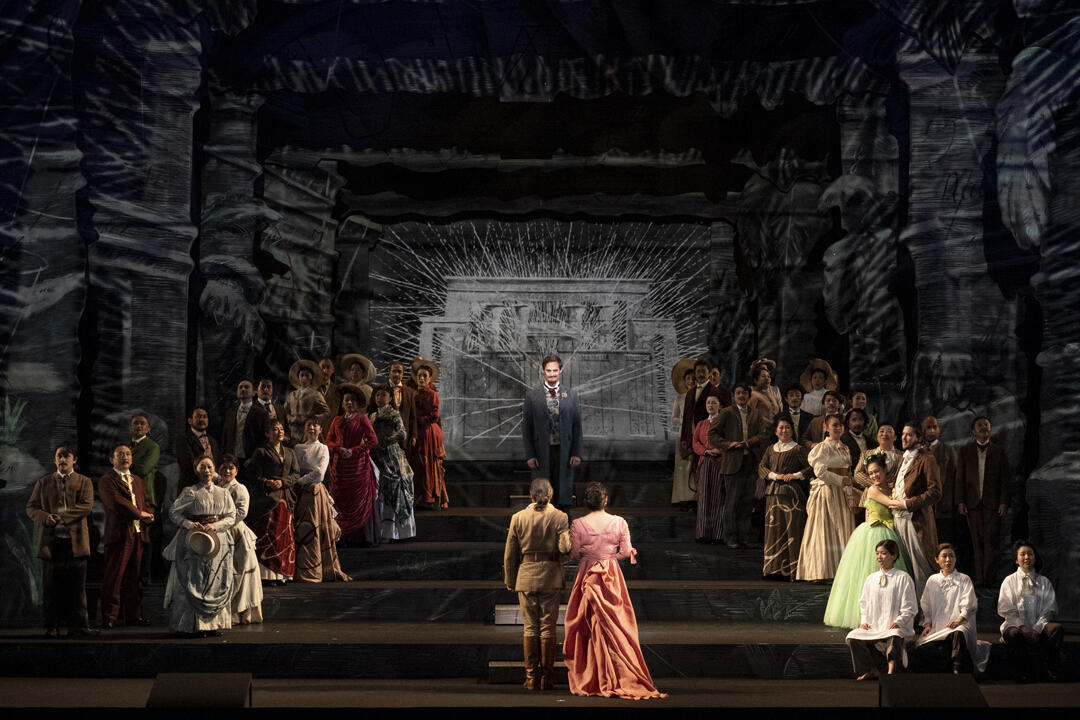
Die Zauberflöte (2018)
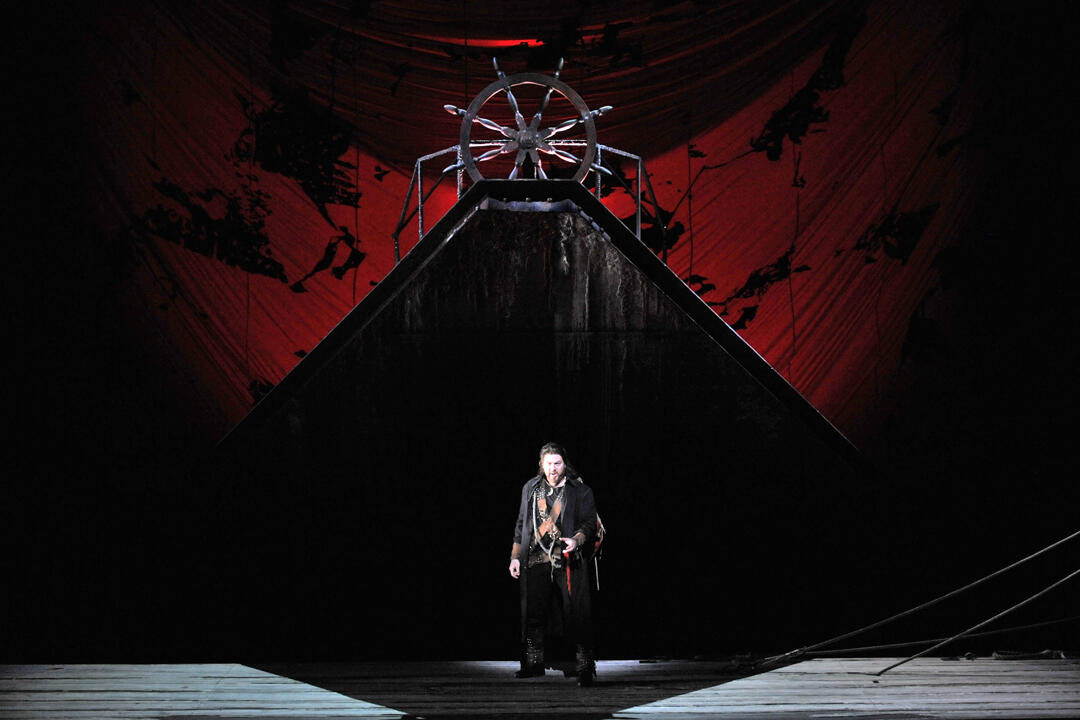
Der fliegende Holländer (2012)
―The other 'pillar' of your appointment as Artistic Director has been to produce a series of double-bills. Eine florentinische Tragödie and Gianni Schicchi, which was the first production of the series in 2019, will be revived.
The production was premiered by the team of director Jun Aguni and conductor Ryusuke Numajiri, and Numajiri has agreed to conduct the production again. The role of Simone in Eine florentinische Tragödie is sung by Thomas Johannes Meyer, a baritone who can knock us out after just one voice. He makes a welcome return after singing Hans Sachs in Die Meistersinger von Nürnberg in 2021. The title role in Gianni Schicchi is played by Pietro Spagnoli. He appeared at the NNTT as Count Almaviva in Le nozze di Figaro in 2017, but his voice has now matured further. This is a notable production featuring two leading singers from both Germany and Italy.
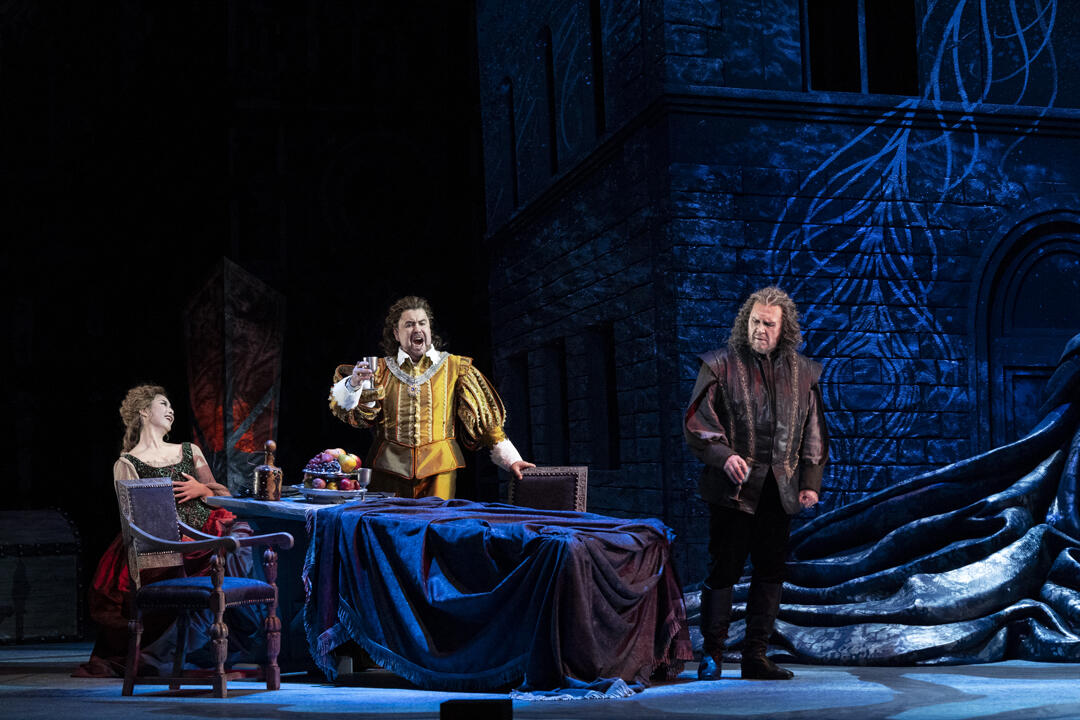
Eine florentinische Tragödie (2019)
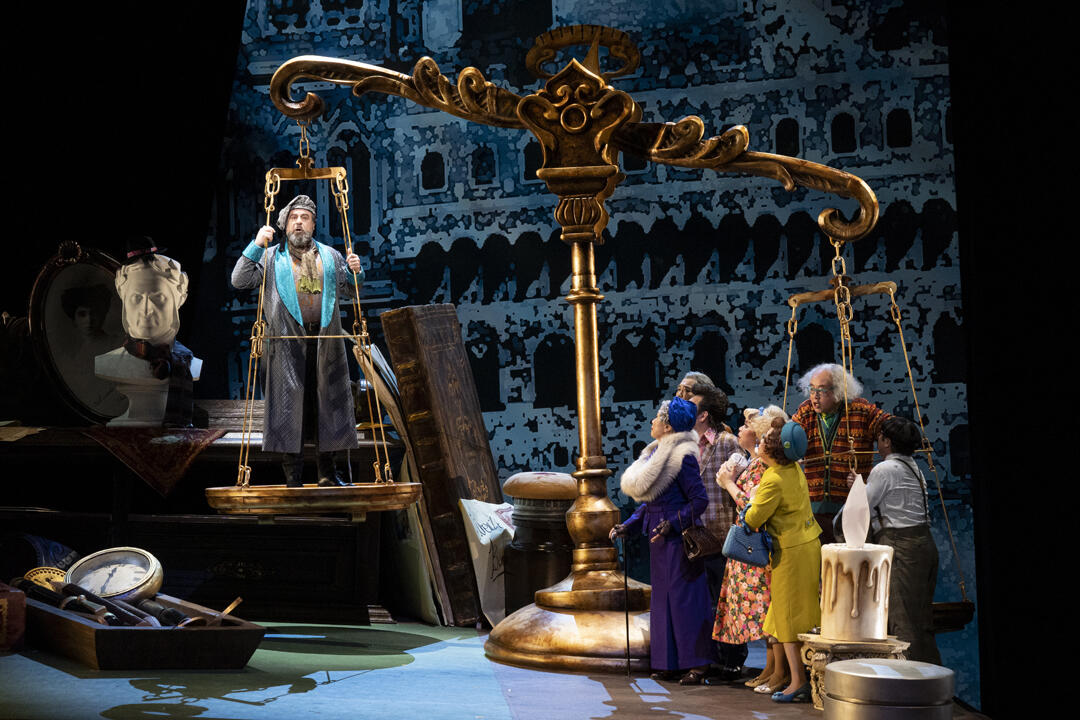
Gianni Schicchi (2019)
―We welcome the revival of Carmen, which was created for the NNTT by Àlex Ollé in 2021. Set in a modern-day rock festival venue, it is a production that shines with Ollé's unique perspective.
The production was staged during the pandemic when there were social distancing rules on the stage. For this revival, however, Àlex Ollé will come again and will direct it as he originally intended. We anticipate it will be a passionate stage in which the interplay of voices will emerge more clearly.
Internationally renowned mezzo, Samantha Hankey, sings the role of Carmen. Don José is played by the sought-after tenor Atalla Ayan, who is still young, and his sprightly voice will surely make the drama even more intense.
―Madama Butterfly will be staged in May next year. The title role is sung by Atsuko Kobayashi, who has received rave reviews for her performances of Elisabetta in Don Carlo and Sieglinde in Die Walküre at the NNTT.
She has already sung Butterfly at the Opera Palace in the Educational Programme for High School Students, but this will be her debut as Butterfly in the main programme. Atsuko Kobayashi's rich emotional expression makes her an ideal Butterfly, so I hope to draw your attention to this production.
―In May and June, Il barbiere di Siviglia will be performed as the second Rossini work of the season.
Conducted by Corrado Lovaris, the star-studded cast includes Lawrence Brownlee as Count Almaviva, Roberto de Candia as Figaro, Aya Wakizono as Rosina, and Hidekazu Tsumaya as Don Basilio. Wakizono's role as Rosina in the 2020 production was highly praised. She has developed into a singer who is able to change the atmosphere just by appearing on stage, and then making the audience fall in love with her even more when they hear her voice. She has a bright future ahead of her.
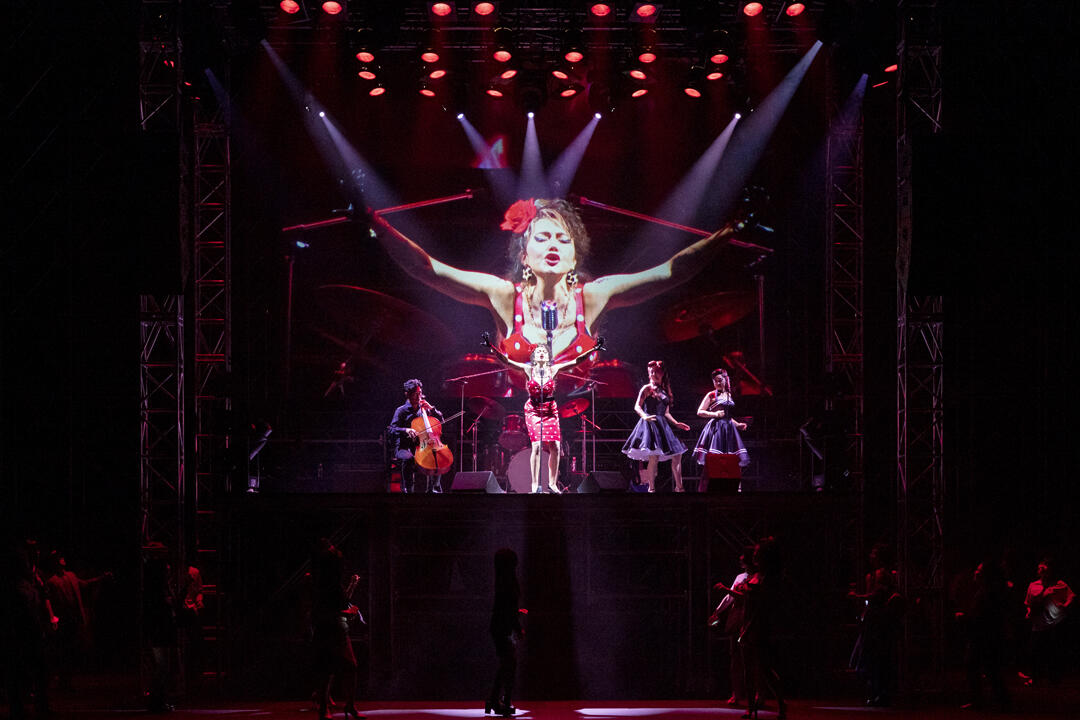
Carmen (2021)
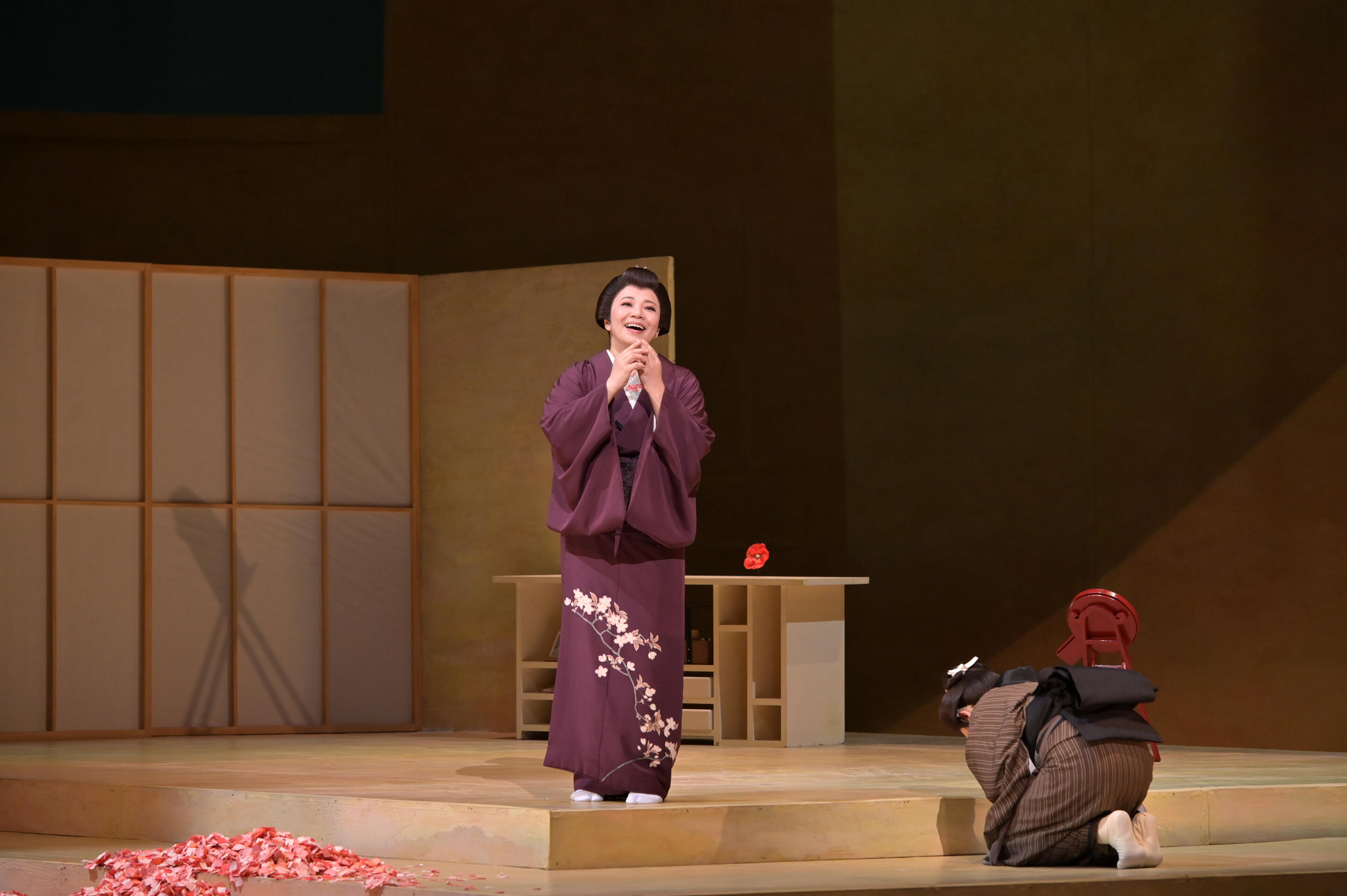
Madama Butterfly (2019)
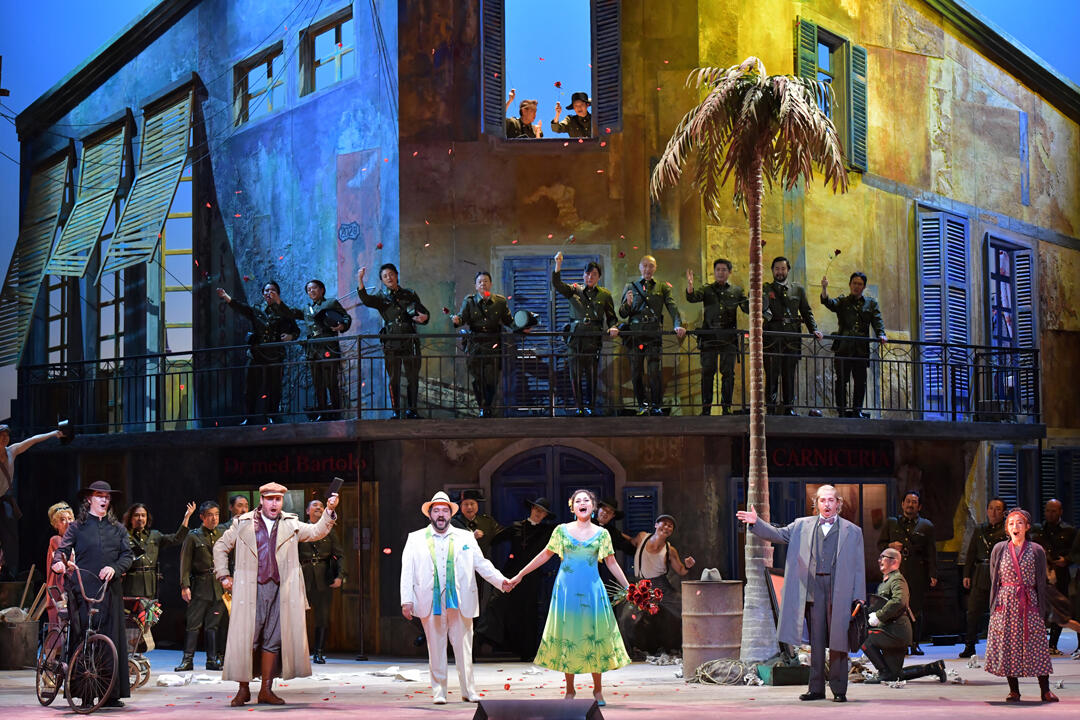
Il barbiere di Siviglia (2020)
―I am very much looking forward to the new season's nine productions, both new productions and repertoire performances. Thank you very much.

